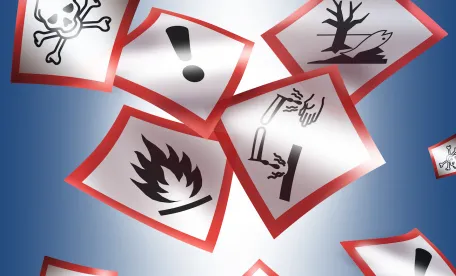In yet another “sue and settle” case, the U.S. Environmental Protection Agency has proposed entering into a consent decree agreeing to rule on the Center for Biological Diversity’s (CBD) petition to classify discarded polyvinyl chloride (PVC) as a hazardous waste under the Resource Conservation and Recovery Act (RCRA). Part of a broader initiative to decrease the volume of plastic waste, this may result in a rule classifying a wide range of PVC-containing industrial, commercial, and retail materials and products as hazardous wastes when discarded.
The consent decree would resolve CBD’s August 2021 complaint in Center for Biological Diversity v. U.S. Environmental Protection Agency, in which CBD alleged that EPA unreasonably delayed acting on a 2014 petition to list discarded PVC as hazardous waste. The proposed consent decree requires that EPA propose a decision on CBD’s petition by Jan. 20, 2023. Interested parties may file comments on this proposed decision, and EPA must issue a final decision by April 12, 2024. EPA published a notice in the Federal Register providing information on the proposed consent decree. Any written comments on the consent decree must be received by June 3, 2022.
CBD asserts that many products ranging from building materials to food packaging to children’s toys contain PVC, which it states can have a harmful effect on human health, the environment, and wildlife. Specifically, CBD asserts that PVC contains vinyl chloride and states EPA has acknowledged that vinyl chloride is a human carcinogen. CBD also asserts that PVC contains chemical additives, such as phthalate plasticizers, which it states have toxic and carcinogenic effects on human and wildlife. Accordingly, CBD believes that PVC should be listed a hazardous waste under RCRA.
Furthermore, CBD’s petition is not aimed merely at PVC waste that might be generated at the initial chemical manufacturing stage: it seeks to have EPA declare that finished materials and products containing PVC are hazardous wastes when discarded. This could encompass, for example, discarded PVC pipe and even trimmings at a construction site, or PVC-containing products that might be discarded by retail stores (e.g., unusable or damaged customer returns). Such a classification might complicate the recycling of any plastics that contain PVC and create headwinds for those who manufacture materials or products containing PVC.
Companies in the PVC value chain, including those who sell or use PVC-containing materials and products, may wish to (1) evaluate their exposure to and the potential impact of this initiative on their business; (2) consider opportunities to engage in advocacy related to EPA’s initial consideration of CBD’s petition and any rulemaking or litigation that might arise from that decision; and (3) begin to assess opportunities to decrease their potential exposure to any eventual classification of discarded PVC as a hazardous waste.




 />i
/>i
